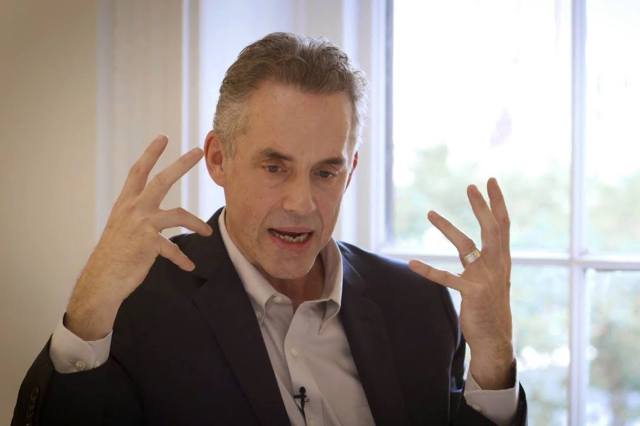
Jordan Peterson isn’t just a public intellectual, he is a cultural phenomenon.
He has a knack for getting into high profile confrontations with the liberal (and not-so-liberal) left – and winning.
Numerous attempts have been made to take him down – not least in magazine profiles: hit-jobs that invariably miss the target (which is what happens when you aim for a straw-man instead of the real thing).
One profile well worth reading, however, is by Wesley Yang for Esquire. Yang understands the apparent contradiction in Peterson’s message i.e. that it amounts to nothing more than good old-fashioned common sense, but is also hugely ambitious:
“His life advice concerns the necessity to defer gratification, face up to the trials of life with equanimity, take responsibility for one’s own choices, and struggle against the temptation to grow resentful. How such traditional values came to be portrayed as a danger adjacent to Nazism is one of the puzzles of our time.
”Viewed another way, Peterson’s intellectual project is exceedingly immodest, and can be stated in a sentence: He aims at nothing short of a refounding of Western civilization…”
But here’s another contradiction: Peterson’s project is indeed one of restoration, yet it is also hugely disruptive – in the sense that an innovative company disrupts a market. In fact, Peterson is in the process of disrupting several ‘markets’.
The first is the so-called alt-right. This always was a misleading label, because the alternative on offer is not to the conventional right. Rather, the variation is on the identity politics of the left. The alt-right offers a similar set of victimhood narratives, but with a different set of victims.
Peterson is accused by his stupider critics of having his alt-right tendencies of his own. They couldn’t be more wrong:
“…his refusal of the consolations of group identity also puts him at odds with the alt-right. ‘The alt-righters would say—and they’ve said this to me directly—‘Peterson, you’re wrong. Identity politics is correct. We just have to play to win.’ I think that’s a reprehensible attitude…’
“…Peterson sees himself as a kind of Catcher in the Rye, rescuing alienated young men from such dangerous temptations.”
Disrupting the market for identity politics – by convincing its potential customers that they don’t need its products (whether in rightist or leftist packaging) – is a campaign that Peterson has waged on social media. However, he isn’t just a (highly successful) YouTube personality. He’s also a serious academic and Yang hints that he may have plans to disrupt a second market:
“He had met with Peter Thiel and Marc Andreessen to discuss an unspecified future venture. Both of those billionaires have for years called for the disruption of higher education, and Peterson has spoken of his desire to create an online university that will offer accreditation in the humanities at a tenth of the prevailing cost. “
As I’ve argued before, this is a market that desperately needs disrupting. Besides the grotesque politicisation of entire disciplines, it is absurd that students should be racking up enormous debts for the privilege of listening to mediocre academics from the back of a lecture theatre, when world-class teaching resources can be made available online. Of course, there’s more to higher education than attending lectures – but digital could reinvent all of that too.
The professoriat isn’t the only professional group that ought to watch out. If most lectures suffer by comparison to Peterson’s talks, the same is also true of most sermons.
Peterson’s relationship to the Christian faith is famously ambiguous, but what Yang calls his “secular homiletics” – especially his unpacking of Biblical stories – is deeper, smarter and more inspiring than 99% of the sermons I’ve ever heard (and I’m a regular church-goer).
Christian critics of Peterson have accused him of ‘Pelagianism’ – the ancient heresy that sinners can save themselves by their own efforts. However, his message, though infused with Biblical references, is primarily psychological and ethical, not religious – specifically, it is not soteriological.
Moreover, the Church cannot expect members of a thoroughly secularised culture to see themselves as being in need of salvation if they accept no moral framework against which to measure themselves (and find themselves wanting).
The Peterson project is about reconstructing that framework – a task which he’s gone about with a moral clarity that puts bishops and archbishops to shame.










Join the discussion
Join like minded readers that support our journalism by becoming a paid subscriber
To join the discussion in the comments, become a paid subscriber.
Join like minded readers that support our journalism, read unlimited articles and enjoy other subscriber-only benefits.
Subscribe